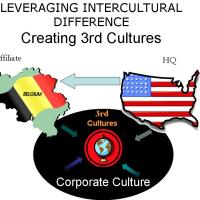See on Scoop.it – Global Leaders
Learn some common mistakes to avoid when traveling or working in a different culture.
The Importance of Cultural Awareness
It’s not just professionals working overseas who need to learn cross-cultural business etiquette. Stop and think about how many different cultures you come into contact with at work.
Even if you work in your home country, your colleagues and suppliers could hail from other cultures. Your organization might decide to acquire or merge with an organization in a different country. And your customers, too, may be located in dozens of countries worldwide.
Considering Cultural Differences:
Consider the following questions when thinking about how a culture might differ from your own:
What values does this culture embrace? How do those values compare with those of your culture?How do people make decisions, conduct relationships, and display emotion?How does this culture treat time and scheduling?What are the social rules and boundaries surrounding gender?How does this culture display and respect power? Which authority figures are revered?How do individuals relate to their employers?How do people in this culture communicate? How direct are they in what they say and mean?
Key Points
Cross-cultural awareness is an essential skill, regardless of whether you’re working overseas, leading a cross-cultural or virtual team, or dealing with a global customer base. Learn about the culture of the country where you’re doing business to avoid cultural mistakes, and to demonstrate respect and understanding.
Research key differences in decision making, relationships, dress, food, dining, and social etiquette before working with or traveling to a different culture. Your hosts will notice your efforts, and appreciate that you took the time to learn about their culture.
Read more on www.mindtools.com
Cultural intelligence cannot be learned by simply visiting different countries for few weeks, learning languages, attend cross-cultural webinars or read books.
Cultural intelligence is acquired by being exposed directly to cross-cultural challenges at work and everyday life, preferably with family.
Related articles
- Wanted: True Global Business Leaders !
- Virtual Teams and the Challenge of Cross-Cultural Differences (worklifestrategies.net)
- Beyond Cultural Differences: Cross-Cultural Comfort (culturalsavvy.wordpress.com)








Pingback: How Intercultural Competence Drives Success in Global Virtual Teams | Anne Egros, Intercultural Executive Coach
Pingback: How to create a strong relationship with your boss | Motivational Skills
Pingback: Intercultural training important to expats’ success | Anne Egros, Intercultural Executive Coach